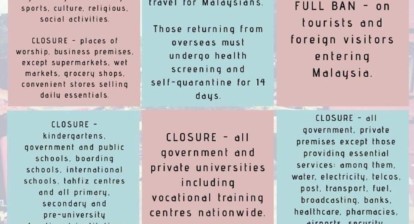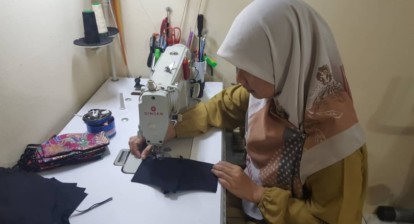The People
Respondents to the PropSocial COVID-19 #StayAtHome Survey comprise owners and prospective buyers of property for their own use, owners or buyers of property for investment, renters, property enthusiasts, as well as property agents, negotiators, and other stakeholders who happened to come across our survey, making up the remaining 10%.


All stuck at home – just as you and us undoubtedly are right now. Photo by Dillon Shook on Unsplash.
How We’ve Been Coping
We began by asking respondents how they spent their time at home and what we found further emphasises what should be the already obvious importance of having an adequate internet connection in a residential property.
Ranked from in terms of descending importance, these activities range from remote-working, spending time with family, exercising, practicing a skill, browsing the web, all the way down to watching Netflix and growing roots while planted on a sofa or mattress. Certainly, most (if not all) of these activities would be impossible without the sometimes-underappreciated, modern-day convenience that is the internet connection.


And the real hero of every household, the often-abused internet router. Photo by Webaroo on Unsplash.
To underscore the necessity of this amenity, the Malaysian Communications and Multimedia Commission (MCMC) revealed that in 2018, over 88% of internet users in Malaysia got online via a broadband connection at home, according to their Internet Users Survey conducted that year.


In the PropSocial COVID-19 Survey, we asked respondents how much their internet usage has changed during the MCO, and naturally, the vast majority (75%) saw their online time increase. While only 25% claimed that their time spent online remained about the same, 29% of respondents estimated increases in excess of 70% more time spent online; 16% said they spent about 30% more time; 9% saw about 50% more time online; and 21% said they were only offline when asleep or otherwise indisposed.


Someone, somewhere, somehow, just figured out how to stay online while asleep and is probably filing a patent for it as you’re reading this. Photo by Gaelle Marcel on Unsplash.
Tenant-Landlord Relations
Another set of interesting findings from this survey revealed how relationships between property owners and tenants have changed during this crisis. For example, we’re pleased to report that the majority (77%) of respondents to our survey successfully negotiated discounts on their rental with their landlords.
Most of the negotiations initiated by tenants resulted in concessions ranging from 5% to 50% off their rental for periods up to six months, with some getting one to two months’ rental waived by generous landlords. Only 15% were unable or unwilling to pursue similar concessions while 8% of respondents had not broached the subject with their landlords.


If it works, why not keep it going? Photo by Filip Filkovic Philatz on Unsplash
Similarly, most landlords seem to understand the importance of compromise in this time and expressed willingness to negotiate with tenants. The majority (86%) had already arrived at compromises with their tenants by the time this survey began, while only 7% had not yet begun negotiations with their tenants and a further 7% said they were simply not willing to negotiate.
Apart from similar concessions ranging from 5% to 50%, some landlords said they were willing to agree to deferments right up to the end of the MCO, or provide discounts of up to 80% off rental, depending on their tenant’s circumstances. This time also saw some tenant-landlord relationships strengthened by novel arrangements, such as agreeing to significantly lower monthly payments in exchange for longer tenures.
Routines Post-MCO
What about once the MCO is lifted? We like to think everything will go back to normal once this crisis comes to a close – but it is far more likely that our idea of normal may already be obsolete. This unprecedented situation has such far-reaching implications that analysts are still attempting to model what the world in 2024 will look like.


In the PropSocial COVID-19 Survey, only 12% feel safe enough to venture out of their homes post-MCO – while the overwhelming majority of 72% would avoid going out as much as possible, even if freedom of movement is restored. The remaining 16% had other plans including remaining indoors and continuing to self-isolate.
While COVID-19 is certainly bad news for brick-and-mortar commerce, residential property owners can be certain that their tenants will be doing everything they can to keep a home. The optimistic might also take comfort in the fact that, eventually, in the absence of any real threat of infection, it will only be a matter of time before people leave their homes in search of novel experiences.


Cabin fever gets to us all. Photo by Ayesh Rathnayake on Unsplash
When asked this month (in April) if they were prepared for life post-MCO, half (around 47%) of the respondents expressed an urgency to return to some form of normalcy, while the slightly larger remainder of 53% expressed uncertainty about what their routines would look like post-MCO.
In the meantime, among the cautious and those who would be continuing to self-isolate beyond the MCO, there will be bargain hunters looking for deals. Smart investors know that every crisis is served with a side of opportunity and some of the respondents to the PropSocial COVID-19 Survey share this maxim.
Marketing Post-MCO
While a significant proportion (around 32%) of respondents expressed little interest in property deals appearing in social media feeds, some 14% believe that the property market has finally bottomed out and that now is indeed the time to buy-in. The larger half (54%) of respondents said they would not be keen to invest in property right now, but would be keeping an eye out for attractive deals anyway.
As with other crises that have occurred in the past, most people are still keen enough to be on the lookout for deals. When we asked our respondents if they would be interested in a property that qualified as a deal – a prime location, an affordable price, or guaranteed rental returns to cover monthly expenses – the majority (91%) expressed interest. The majority comprises 41% who said they would invest immediately and 50% who would study the prospect further before deciding, while the remaining 9% maintained that they would be suspicious of such deals appearing in this climate.


“It’s affordable and it’s got everything I need? Talk to the hand for I am unconvinced.” Photo by Nadine Shaabana on Unsplash.
As to timeframes, a minority (12%) of our bargain-hunting respondents said that they would be interested in purchasing real estate between one to six months following the end of the MCO, but while one-third (33%) said they would not be interested in buying a property at any time in the foreseeable future, over half (55%) expressed interest in purchasing real estate between six months to a year after freedom of movement is restored.
Further indication that the MCO has had a limited effect on long-term buyer sentiment can be found in our survey’s distribution of property budgets. The property prices that people are seeking have largely remained the same – despite the upheaval everywhere else. Over three-quarters (76%) of respondents are still seeking properties priced between RM300,000 to RM500,000 while 24% have purchase budgets exceeding half a million ringgit.
A crucial component of the PropSocial COVID-19 Survey included an inventory of features that respondents felt were the most important to have in a home. Ranked from greatest to least importance, these features were: security, a stunning view, greater indoor space, private outdoor space, followed by structural soundness, and a wow factor to distract from the boredom of isolation.


And we do agree, something with all that would be a deal of a lifetime – as long as it costs between RM300,000 and RM500,000. Photo by fran hogan on Unsplash.
Prop-tech Post-MCO
The fourth industrial revolution was very much on its way to changing the way we experience and purchase real estate even before things literally went viral. With our prolonged isolation and our time being increasingly spent online, most prospective buyers will be expecting pre-recorded video tours, remote viewing, and virtual or augmented reality tools to become indispensable steps in the due diligence checklist post-MCO.


It’s a brave new world. Photo by JESHOOTS.COM on Unsplash.
Only 17% of our respondents felt that they could not stop relying on visits to show galleries or actual units entirely when considering the purchase or rental of a property, but 73% felt these new technologies could be used to supplement viewings in person and 10% felt that prop-tech could save time, energy, and end up being a convenient replacement for industrial norms.


In Conclusion
If the future seemed bleak last year and somehow seems even more so now, you can believe it’s not just you. With all the noise, it’s easy to forget that we’re all here because sometime in the past, someone thrived despite a crisis. Our thanks go out to the people who shared their thoughts and feelings with us in this survey, because we discovered that our shared belief in a bright future is very much alive – in fact, it’s kind of anxious from the confinement.






Customer Reviews